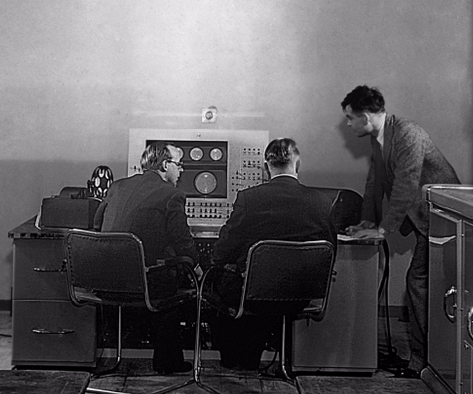World War II codebreaker Alan Turing is now a household name thanks to Benedict Cumberbatch’s performance in the recent award-winning film The Imitation Game. Despite working at the top secret Bletchley Park intelligence establishment where he and his team cracked the German’s notorious Enigma Code, Turing, who was gay, went on to be prosecuted for “gross indecency”, committing suicide in 1954. The Queen only pardoned him in 2103. What is less well-known however is that after the war Turing was involved in early experiments with electronic music creating the first computer-generated piece of music in 1951.
 Alan Turing (right) at the console of his Mark II computer. Photo: University of Manchester School of Computer Science
Alan Turing (right) at the console of his Mark II computer. Photo: University of Manchester School of Computer Science
Turing’s prototype machine was so large and complex that it occupied most of his facility at Manchester’s Computing Machine Laboratory. He subsequently produced a Mark II, and it was the sounds of this smaller machine that were captured by a BBC outside broadcast unit using a portable acetate disc cutter. Until now, the recording that he created has been known by relatively few, mostly because the sound was so distorted that it couldn’t be properly appreciated....










Comments
Log in to join the conversation.